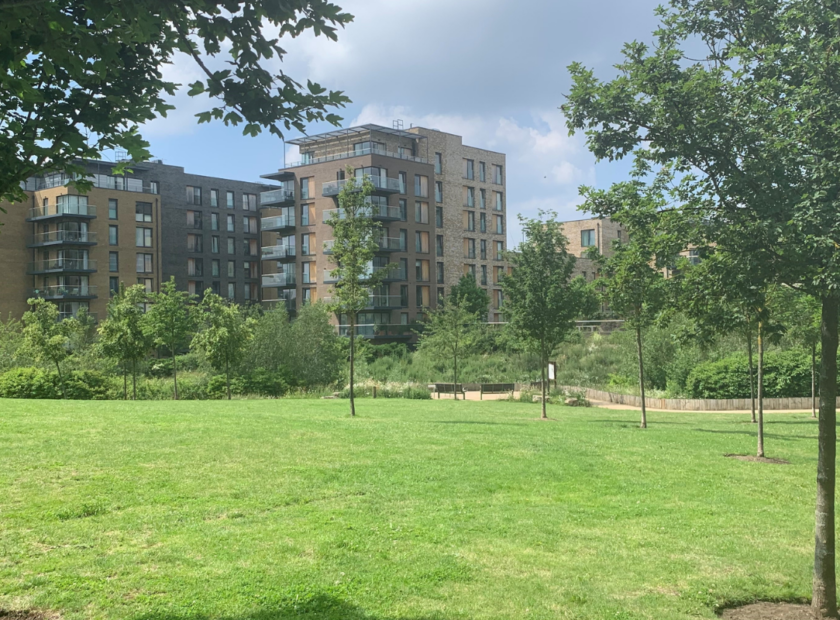The social contract at the heart of planning is being broken: People and business will be the losers.
The very muted response to the government’s latest consultation on radical planning changes [1] illustrates how punch-drunk we have all become. If these proposals had happened in previous years there would have been an outcry about the way they would lower housing standards, extinguish local democracy and end public participation.
A great deal of energy has been expended on the Planning White Paper process but in reality it seems that this has simply been a distraction. While we were all caught up in discussions about the ‘three zones’, democratic planning for a raft of important development has come to end to be replaced by a form of land licensing. The most recent consultation consolidates the relaxation of the use class order and extends and makes permanent existing permitted development rights so that town planning as we have known it does not apply to the vast majority of development that can take place in urban areas. The intention to apply national PDR conversion rights to conservation areas and to exclude design and climate mitigation from the list of prior approval matters will lead to some extremely poor outcomes[2]. The public have no rights to participate in this new PDR regime and local authorities have lost any meaningful control over place making. The suggestion that rights to natural light and space standard solve the standards issue is false. Right to natural light is not the same as a right to a window, and the health data shows that its a view, preferably with a tree in it, that really counts.[3] The design I’m seeing of new flats through PDR with no windows but light tunnels provides, I imagine, the same effect as a living at the bottom of well.
The government has justified these proposals at least partly on the basis that high streets and town centres need flexibility to enable them to regenerate and thrive. But losing control of town centres will do nothing to securing their comprehensive regeneration. It locks out local people from any say[4] on the shape and feel of their communities and civic centres and sacrifices the ability of councils to secure the balanced and imaginative new uses for our civic space.
The other proposals in the consultation to shorten public consultation to 14 days for things like prisons further excludes people and Parish and Town councils who find it hard enough to work with the current 21 day consultation period.
These proposals have been brought forward despite widespread concerns from parliamentarians and a host of organisations raised both publicly and in many meetings with ministers and officials. These representations, particularly on democracy and local control, have been comprehensively ignored. But for all the direct impact on outcomes, like the way PDR bypasses the climate mitigation duty, it’s the issue of democracy which is the common thread. This gets to the heart of whether you see planning as an intrinsically democratic and participative process or whether you regard people as an afterthought, or even worse, as a problem.
I won’t rehearse again why the detail of the White Paper clearly reduces public participation and democratic scrutiny[5]. Whether this is what ministers intended to do or not I don’t know, but that is the effect of the White Paper proposals. If you needed further confirmation of the government’s approach to the people question then the publication of the governments National Infrastructure Strategy is a useful, if slightly chilling, read. Chapter five of the Infrastructure Strategy[6] repeats many of the provisions of the Planning White Paper but it adds into them the ambitions of the Treasury’s ‘Project Speed’. This aims, among other things, to streamline some forms of major infrastructure planning reducing the standard time scales for decisions by 50%. In all of the lengthy words in the strategy the issue of democratic accountability, public trust and meaningful community participation are completely and staggeringly ignored. The issue of governance is always the first test of successful planning reform and previous initiatives such as statutory regional planning have all failed not because they were bad ideas but because they were not perceived as legitimate. On the one hand, the TCPA campaign for democratic planning based on legally enforceable rights is a matter of principle, but on the other the failure to get the governance right will always end in practical failure. You can’t build anything without a measure of public consent based on an idea of democratic legitimacy.
This conclusion is based on a clear understanding that planning operates as a social contract and not just as a simplistic licensing regime. The social contract that planning represents is an attempt to reconcile the needs of landowners and developers, the local and national state and the needs of the wider community. The system recognises the legitimate operation of the development sector but creates a framework of regulation and democratic accountability to ensure this market activity is broadly in the public interest. In the absence of a social contract no one has any obligation to play nicely. Landowners can collect unearned increments, developers can maximise profits and reduce standards and those with no financial stake in the development process are left crying in the dark. The result is the effective end of public interest planning in England.
The English are not known for their revolutionary tendencies but in my view without the operation of a robust social contract planning will rapidly become land war by other means. Over the last 10 years the elastic of this social contract has been stretched to breaking point particularly with the introduction of permitted development with both terrible outcomes for people and no community involvement in decisions. But the institutionalisation of PDR which has been further demonstrated by the government’s latest proposals[7], along with forthcoming measures which exclude people from other decision-making processes on major infrastructure, will set the scene for a new round of divisive public protest on planning decisions. The lesson is an important one because good democratic governance remains the first and hardest test of all successful planning reform. Everything else is easy by comparison but ignore it and it will bite you very hard in our current unforgiving political world. In any case the TCPA, like a small rodent trying to stop a freight train, will go on doing what it can to signal the folly of reform which rips up the delicate democratic balance between the competing interests that shape our communities.
So far there have not been many festive laughs in this blog. So, to leave us all on a happy Christmas note, I was delighted to discover that the Treasury had apparently resurrected the 1947 Planning Act. You know the one that created just 145 planning authorities in England and applied a national system of betterment tax. The National Infrastructure Strategy says this in chapter five:
‘The Town and Country Planning Act 1947 (TCPA), supported by the National Planning Policy Framework, allows local authorities to make planning decisions for development and infrastructure within their local areas.’
Last time I checked the 1947 Act was repealed in 1962 but far be it from me to argue with Treasury and I trust Santa will bring me a shiny copy of 1947 Act. Given the 1947 legislation, along with the 1946 New Towns Act was by some measure the best solution we have ever had to the enduring challenges of democratic planning maybe the Treasury is really onto something?
Merry Christmas.
[1] Supporting housing delivery and public service infrastructure – GOV.UK (www.gov.uk) – published 3 December 2020
[2] See paragraph 21 of the consultation.
[3] https://www.euro.who.int/__data/assets/pdf_file/0005/321971/Urban-green-spaces-and-health-review-evidence.pdf
[4] Paragraph 20 suggests there will be right to make representations by local people. There is no current legal ‘right’ to do this and in any event decision makes cannot consider any matter not specifically identified in the prior approval matters. Public views are not listed a such a matter and so could not be ground for refusal.
[5] See this blog for a further explanation of this: Blog: The Planning White Paper and that morning after feeling – Hugh Ellis | Town and Country Planning Association (www.tcpa.org.uk)
[6] National Infrastructure Strategy – GOV.UK (www.gov.uk)
[7] Supporting housing delivery and public service infrastructure – GOV.UK (www.gov.uk) – published 3 December 2020




